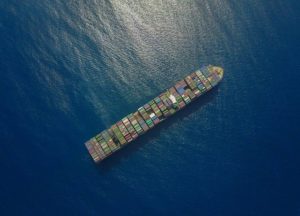
Members of the Association of International Shipping Lines (AISL) are ready for the strict enforcement next year of the International Maritime Organization’s (IMO) global 0.50% sulfur cap on marine fuel oil.
“All AISL members, whose membership consists of foreign container liners, are ready for the implementation of IMO 2020 effective January 01, 2020. All of them have long been preparing for the January 01, 2020 implementation and have made the necessary adjustments to comply with the 0.5% m/m (mass by mass) sulfur cap for fuel oil. Some vessels are in the process of installing scrubbers while some would prefer using compliant low-sulfur fuel,” AISL general manager Atty. Maximino Cruz told PortCalls in a recent email.
Annex VI of the International Convention for the Prevention of Pollution from Ships, or MARPOL Convention, requires all ships in non-emission control area zones to set a limit on the sulfur content of fuels from 3.50% to 0.50% by January 1, 2020. The Philippines ratified MARPOL Annex VI in 2018.
The regulation applies to all ships, whether they are on international voyages between two or more countries, or on domestic voyages solely within the waters of a party to the MARPOL Annex.
The sulfur cap policy, also known as IMO 2020, aims to reduce the amount of sulfur oxides emanating from ships in order to gain health and environmental benefits for the world, particularly for populations living close to ports and coasts.
Cruz said member carriers are actively informing their customers about the IMO 2020 implementation while AISL is also waging an information campaign among shippers and consignees.
Even before the January 1, 2020 implementation, Cruz noted that shippers can already communicate with their shipping lines “so that they can be fully enlightened on the commercial implications of compliance.”
Asked if shippers should expect surcharges or rate increases even before January 2020, Cruz explained: “International shipping today is a highly competitive industry. Hence, whether there will bunker price adjustments during the last quarter of 2019 will depend on the commercial decision of the shipping line. It is important to note however that during the period of implementation, there will be a steep increase in bunker prices.”
READ: AISL prepares for IMO 2020, notes cost implications
AISL president Patrick Ronas earlier said freight rates may increase as the new policy is anticipated to entail an additional cost of more than US$30 billion, while the cost of port-to-port moves is estimated to rise by 10% to 20%.
According to research and consulting firm Wood Mackenzie, the IMO sulfur regulations will have the potential to be “highly disruptive to the pricing and availability of compliant fuels” as the marine sector, which consumed 3.8 million barrels per day of fuel oil in 2017, is responsible for half of global fuel oil demand.
Cruz earlier noted that the cost increase will depend on the options available to shipping lines to comply with the low sulfur fuel content. These options include the use of an exhaust gas cleaning system or “scrubbers”; the switch to marine gas oil (MGO) or to the ultra-low sulfur fuel oil; or the burning of liquefied natural gas (LNG) as fuel.
Cruz also noted that “there could be some minimal service disruptions while scrubbers are being installed, not to mention the scrubbers’ limited manufacturing capacity, drydock space, among others.”
“It is important to note that while the use of scrubbers appears to be the preferred option to date, there are other alternatives that shipping lines may resort to,” Cruz said.
Monitoring, compliance and enforcement of the new limit falls on the governments and national authorities of member states that are parties to MARPOL Annex VI. Flag states (the states of registry of ships) and port states also have rights and responsibilities to enforce compliance.
The Philippine Maritime Industry Authority, while still finalizing the roadmap for the country’s implementation of IMO 2020 for domestic vessels, has said it will enforce the policy for overseas shipping vessels come January 2020. – Roumina Pablo
